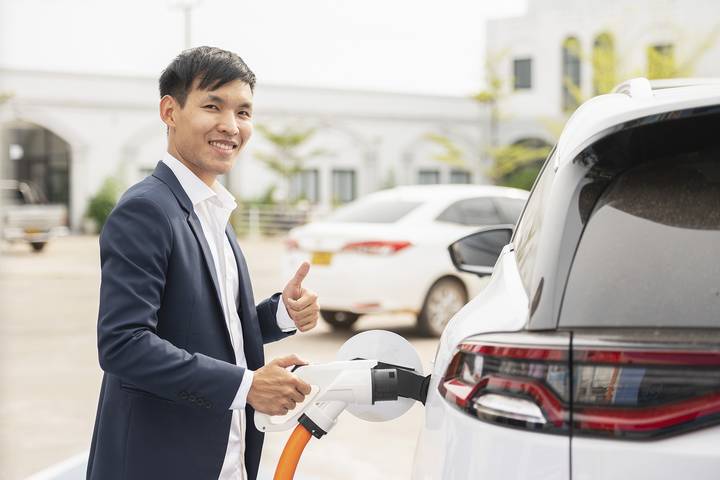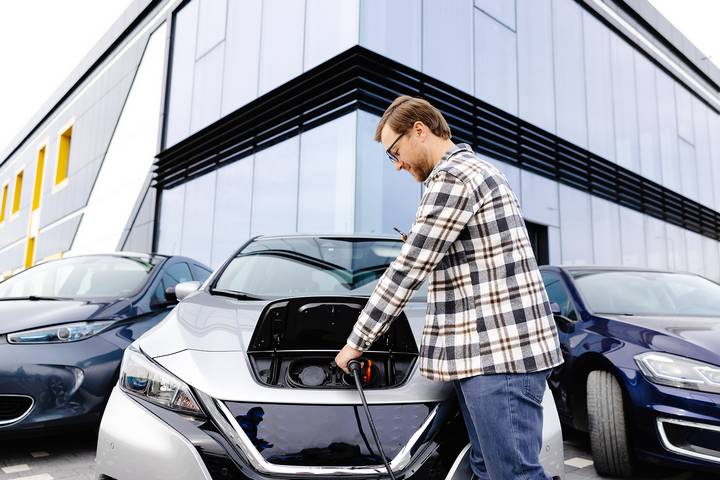Technology has been through constant development since its invention. The list of technological items is vast, from the lightbulb to the telephone, phones, laptops and tablets, and cars.
One industry, in particular, that thrives on technology would be the automotive industry. Cars, motorcycles, buses. Trains and other vehicles are widely used in today’s world. In certain places, it is almost impossible to get around without at least some mode of vehicular transportation.
To be more environmentally friendly, companies have come out with electric cars. As the name suggests, these vehicles run on electricity rather than traditional internal combustion engines that run on gasoline or diesel. Electric cars use electricity stored in a rechargeable battery pack to drive electric motors, propelling the vehicle. These electric motors provide the necessary power to move the car, resulting in a cleaner, more environmentally friendly, and energy-efficient mode of transportation!
As you may already know, these electric cars are far better than gas cars. If you are contemplating purchasing one, allow us to explain the various reasons why electric cars are a must.
Continue reading about why electric cars are better than gas cars.
1. Environmentally friendly option

As discussed above, electric cars are much more environmentally friendly than gas cars. Electric cars produce zero tailpipe emissions, starkly contrasting to gasoline vehicles that emit harmful pollutants like carbon dioxide or nitrogen oxides. Reducing air pollution improves air quality and public health, especially in high-density populated areas that rely heavily on vehicles.
Commercial EV charging stations have become essential for widespread adoption of electric cars. When charged with electricity from renewable sources like wind, solar, or hydropower at these stations, electric cars substantially reduce greenhouse gas emissions compared to gas cars. This reduces the carbon footprint, bettering the environment.
While gas cars are not energy efficient, electric cars prove to be! Internal combustion engines in traditional cars waste a substantial portion of the energy contained in gasoline as heat. In contrast, electric motors used in electric vehicles are highly efficient, converting a greater percentage of the energy from the electrical source into forward motion. This efficiency means electric cars can travel longer distances while utilizing less energy at commercial EV charging stations, reducing their environmental impact.
2. Noise pollution reduction

Another major advantage of electric cars is their lack of contribution to noise pollution. Traditional internal combustion engines generate considerable noise during operation, increasing noise levels in urban environments. In contrast, electric vehicles are remarkably quiet due to their electric motors, resulting in a more peaceful and serene driving experience.
This reduction in noise pollution benefits both the drivers of electric cars and the communities through which they travel, contributing to improved overall well-being and quality of life. Not only does this diminished noise level enhance the comfort of the passengers, but it also leads to less disturbance for pedestrians and residents.
3. Better performance

Electric cars also perform better than gas cars. Electric cars have a significant advantage in terms of instantaneous torque delivery. Unlike gas car engines that need time to reach their power band, electric motors deliver power when you step on the accelerator. When driving, you will also be able to notice the smooth and responsive acceleration, creating a thrilling driving experience.
In addition, electric cars typically have a lower centre of gravity than gas cars. The lower centre of gravity enhances stability and overall handling, making electric cars feel more planted on the road and an easier and more attractive driving option.
4. More convenient

Electric cars are extremely convenient, mainly because of their home charging features and reduced maintenance necessities.
One of the electric cars’ most significant conveniences is charging them at home. Simply plug your electric car into a standard electrical outlet or a dedicated home charging station, and it will recharge while you sleep or go about your day. This eliminates the need for regular trips to the gas station, saving you time and effort and preventing you from having to pay inflated gas prices.
Gasoline-powered vehicles come with various maintenance requirements, from oil changes and air filter replacements to mufflers. Conversely, electric cars have far fewer moving parts, resulting in lower maintenance needs. This leads to fewer oil changes and repairs and less time and money spent!
5. Government incentives

Government incentives play a pivotal role in making electric cars a more appealing choice for consumers. These incentives, including tax credits, rebates, and special privileges like access to carpool lanes, make electric cars seem more affordable and convenient.
By offering financial benefits and preferential treatment, governments worldwide encourage the adoption of electric cars, thereby promoting cleaner and more sustainable transportation! These incentives benefit the individual and the environment, resulting in a win-win situation!
